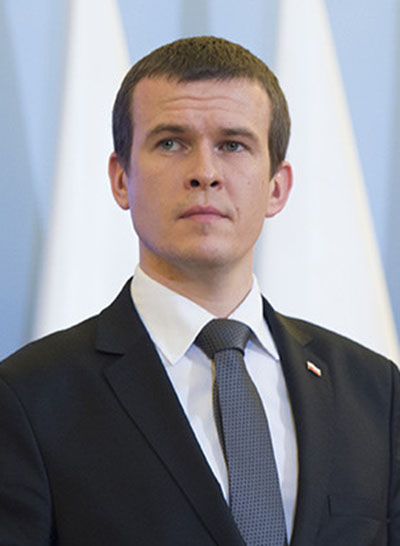KATOWICE, Poland, (Reuters) – World Anti-doping Agency (WADA) President-elect Witold Banka pledged yesterday to be tough on Russia if the country is proven to have manipulated the doping data of its athletes.
The Polish Tourism and Sports Minister, who was officially appointed as the next WADA president on Thursday, will take over his post on Jan. 1.
“I start my term of office next year. I am waiting for the results of the analyses. If we discover some manipulations the reaction should be tough,” Banka told a news conference.
For more than four years Russia has been the focus of several investigations and sanctions after a 2015 WADA-commissioned report highlighted a vast doping network in the country’s sports community.
Russia’s anti-doping agency RUSADA was suspended after a 2015 WADA report which found vast evidence of state-sponsored doping in Russian athletics. The country has since struggled to restore its international credibility in sport.
RUSADA’s suspension was lifted in September 2018 amid strong criticism as WADA gradually obtained access to key Russian athletes’ data from the Russian lab.
But WADA opened compliance proceedings again in September after finding inconsistencies in the vast bank of historical testing data finally handed over in January.
The 35-year-old Banka, a former track and field athlete who will succeed Craig Reedie, was the public authorities’ choice for WADA president, as the post rotates between a choice from sports bodies and one from public authorities.
Banka, whose appointment was rubber-stamped by the body’s Foundation Board on the final day of the world conference on doping in sport, has also pledged to set up a doping fund for corporate sponsors to contribute towards clean sport.
“We have the same objective and goals in our hearts, to clean up sport and create a fair environment,” Banka said in a brief address after a unanimous election.
“I promise you to try to always build bridges with all stakeholders. I am sure together we will make anti-doping systems stronger.”
WADA also approved a revision of its World Anti-Doping Code which will come into force on Jan. 1, 2021 after a two-year consultation process.
Among the changes are considerably lower sanctions for the use of illicit drugs taken not to enhance performances but for recreational purposes, such as marijuana and cocaine.
Athletes will be banned for weeks instead of years for such an anti-doping rule violation if they can establish that the use of such banned substances was unrelated to their sport performance.
Successful completion of a rehab treatment programme can further reduce the suspension.

